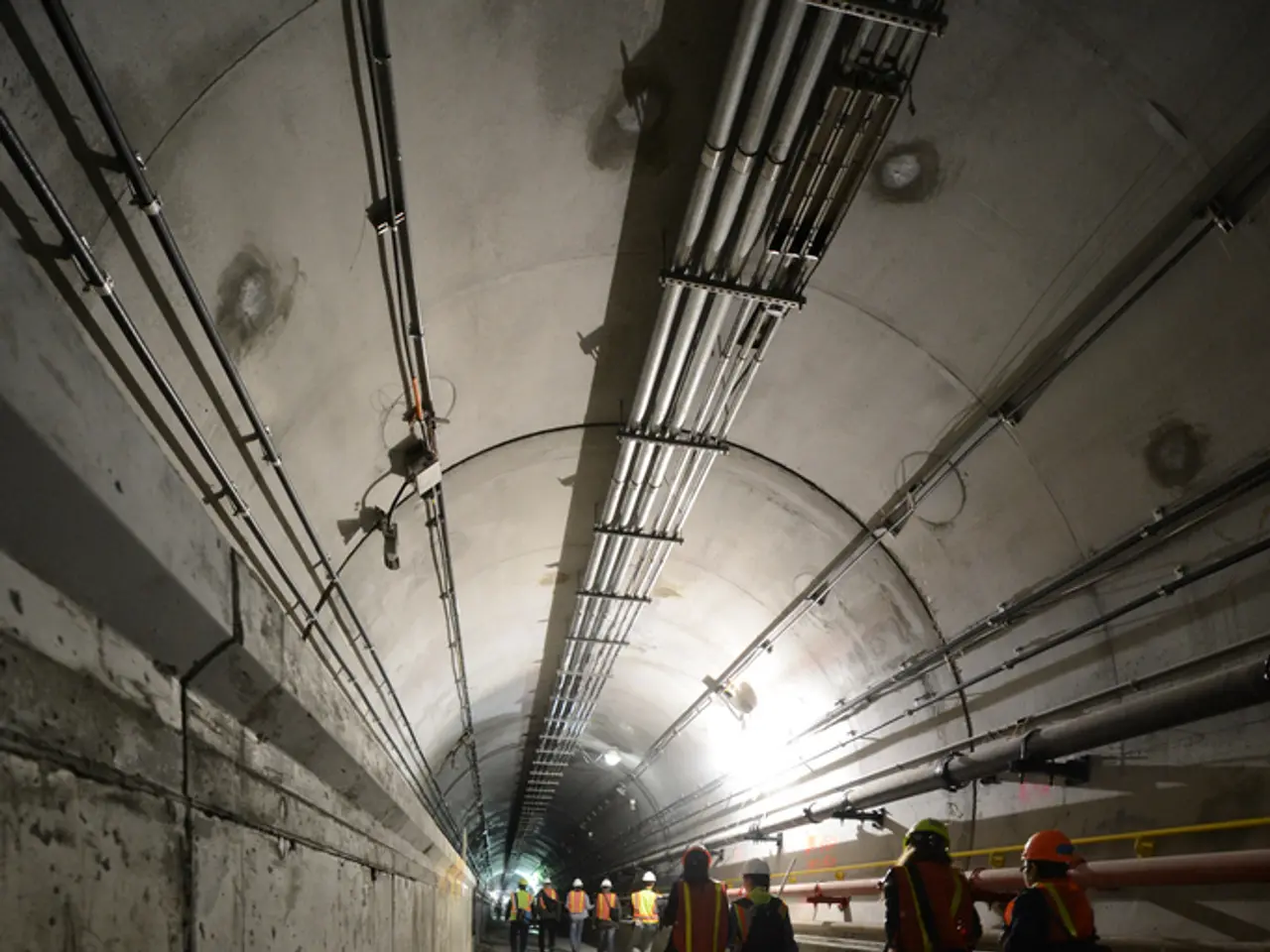Construction Project in Wayanad Sparks Concerns Over Potential Environmental Impact
The proposed Anakkampoyil-Kalladi-Meppadi twin tunnel road project in Kerala's Wayanad district has stirred up a significant controversy due to environmental and safety concerns. The project, valued at Rs 2,134 crores, aims to build an 8.17 km twin-tunnel road linking Kozhikode and Wayanad[1].
The project site is situated close to areas that have experienced deadly landslides, such as the Mundakkai-Chooralmala disaster in 2024 and the 2019 Puthumala landslide, which resulted in the loss of many lives[1]. This proximity to landslide-prone regions in the Western Ghats has raised renewed concerns about procedural violations in the approval process, particularly the handling of the Environmental Impact Assessment (EIA) by an agency connected to the state government[1][4].
Critics argue that critical information was withheld during the Stage-1 forest clearance application[1]. Environmentalists and petitioners assert that Wayanad’s ecological sensitivity, including designated eco-sensitive areas (ESAs) intersected by the tunnel alignment, necessitates a central-level environmental appraisal. However, this was bypassed by the state authority[2][4].
In response, the Kerala High Court has asked the state government to respond to a Public Interest Litigation (PIL) challenging the project’s forest and environmental clearances, temporarily halting any project commencement until the PIL is resolved[2]. The PIL, filed by the Wayanad Prakrithi Samrakshana Samithi, contends that the tunnel alignment passes through ecologically sensitive areas (ESAs) in Thiruvambady (Kozhikode) and Vellarimala (Wayanad)[2].
The project faces criticism for risking further landslides and environmental damage in a fragile hill ecosystem, posing dangers to both the local population and biodiversity[4][5]. The controversy stems from concerns about landslide risks, questionable procedural and environmental approvals, and potential ecological harm in Wayanad’s vulnerable hill terrain.
The Kerala Public Works Department Minister PA Muhammed Riyas announced that construction would begin by September, with the project expected to cut the travel distance from Kozhikode to Kalpetta by 31 km, avoiding the existing 13-km Ghat stretch with nine hairpin bends[3]. However, Chief Minister Pinarayi Vijayan has stated that the tunnel will be completed in 34 months and will "ensure environmental safeguards"[3].
Radhakrishnan, a prominent critic, warns that the tunnel may become another SilverLine, emphasising concerns about human lives, biodiversity, and the collective future[6]. The matter remains under legal scrutiny, reflecting deep public and expert apprehension regarding the project's safety and environmental impact[1][2][4].
References: 1. The News Minute 2. India Today 3. The Hindu 4. Down To Earth 5. The Indian Express 6. The New Indian Express
- The Anakkampoyil-Kalladi-Meppadi twin tunnel road project, worth Rs 2,134 crores, has sparked debate due to concerns about food safety and the environment, as well as risks of landslides and potential ecological harm in Wayanad's hill terrain.
- Critics argue that procedural violations occurred during the approval process, especially in handling the Environmental Impact Assessment (EIA) by an agency connected to the state government, withholding critical information during the Stage-1 forest clearance application.
- The project has also raised questions about the industry's approach toward environmental-science and climate-change, as it is proposed to bypass designated eco-sensitive areas (ESAs) and ignore central-level environmental appraisal.
- The controversy surrounding the project has brought attention to the need for proper educational and self-development programs in environmental-science, which could help prevent future environmental damage and ensure energy-efficiency in transportation infrastructure.
- Sports enthusiasts and local populations are equally concerned about the risk the project poses to their surroundings, as well as the impact on weather patterns and overall climate-change in the region.
- The project's potential ecological and humanitarian impacts have been compared to past disasters, such as the devastating Mundakkai-Chooralmala disaster in 2024 and the 2019 Puthumala landslide, emphasizing the urgency to prioritize finance and resources toward environmentally-friendly solutions and business practices.




